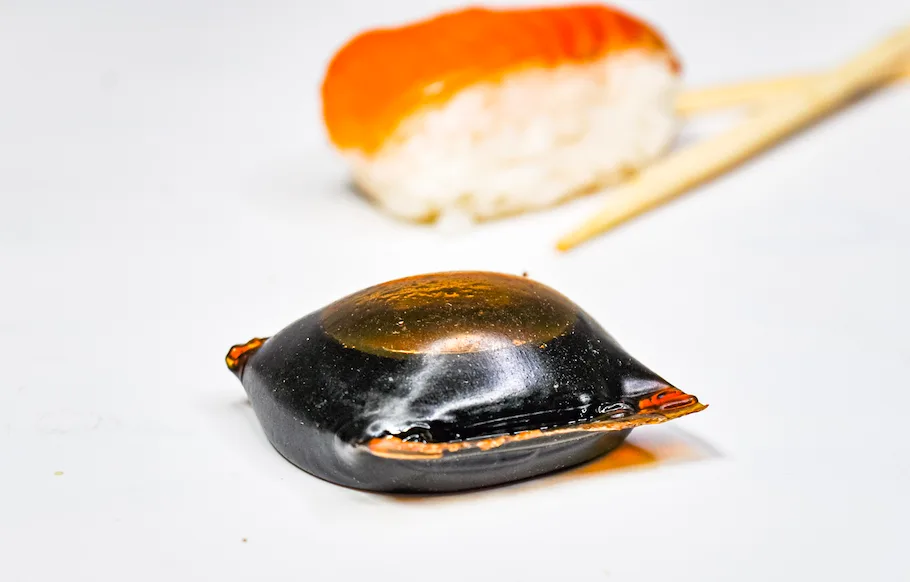
Edible sauce packets made from seaweed could replace need for plastic
The exorbitant amount of plastic packaging that is unavoidable when ordering take-out could be lessened by this edible seaweed-based material.
Plastic consumption has soared over the previous decades and continues to be increasingly present as the COVID-19 pandemic requires more masks, gloves, and packaging to keep food and other items free of contamination. While our own personal rates of plastic use and disposal feel like they are at an all-time high, a London-based startup called Notpla is expanding its solution for the enormous amount of pollution created when we order food from restaurants.
Notpla is a biodegradable material made from brown seaweed that can be turned into a variety of products that would typically be made from plastic, such as sauce packets and disposable containers. The material looks exactly like traditional plastic packaging except it is edible and naturally biodegrades between four to six weeks. Comparatively, synthetic plastics can release hazardous chemicals and microplastics and take several hundred years to decompose.
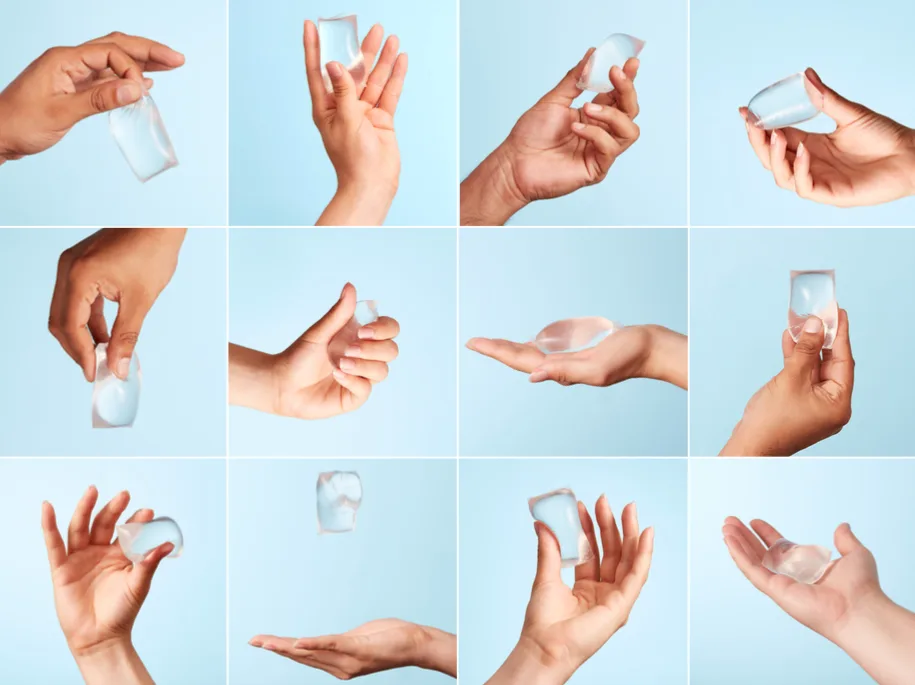
Ohoos reduced the need for thousands of plastic cups and water bottles during the London Marathon. Credit Notpla
Some of you may have heard of Notpla before - the company went viral in 2015 when millions reacted to the innovative water pods that runners used during the Virgin Money London Marathon. The water pod, called Ooho, is made from the edible seaweed material and can be filled with liquids and were handed out in place of plastic cups or water bottles.
Notpla also makes sachets that have a similar appearance to Oohos and are replacing the need for plastic packaging that typically stores mayonnaise, ketchup, soy sauce, and vinaigrettes. These sachets are currently being used for take-out orders by several London restaurants through the Just Eat platform.
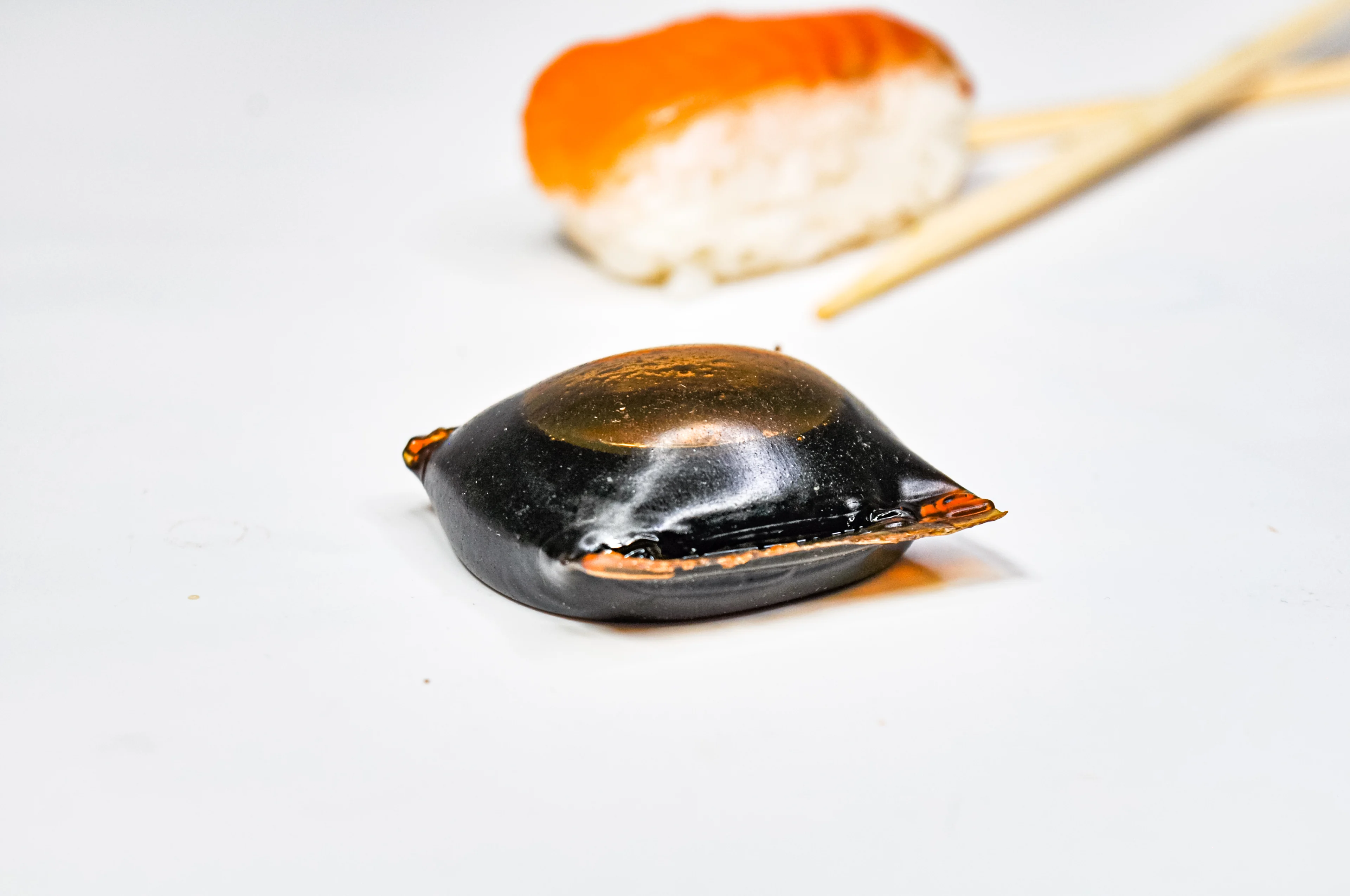
The seaweed material has zero odour and can store 20-150 mL per sachet, depending on what it’s being used for. Credit: Notpla
Notpla says that there are several reasons why the seaweed material is significantly more eco-friendly than synthetic plastics. It is globally abundant and readily available because of how quickly it grows - brown seaweed can grow up to one metre per day and does not require any freshwater or fertilizers.
Seaweed is one of nature’s most renewable resources and the company also highlights that seaweed doesn’t compete for resources with other food crops and captures carbon dioxide while de-acidifying oceans.
SUSTAINABLE ALTERNATIVES TO SINGLE-USE PLASTICS
The International Solid Waste Association estimates that society is consuming 250-300 per cent more single-use plastic than pre-pandemic levels, which includes 129 billion face masks 65 billion gloves being used globally each month. Food deliveries encased in plastic have also become increasingly popular as Uber Eats saw its revenue increased 103 per cent in the second quarter of 2020.
Amid what feels like a never-ending eruption of plastics, Notpla has revealed plans to further expand additional biodegradable packaging, such as disposable food containers.
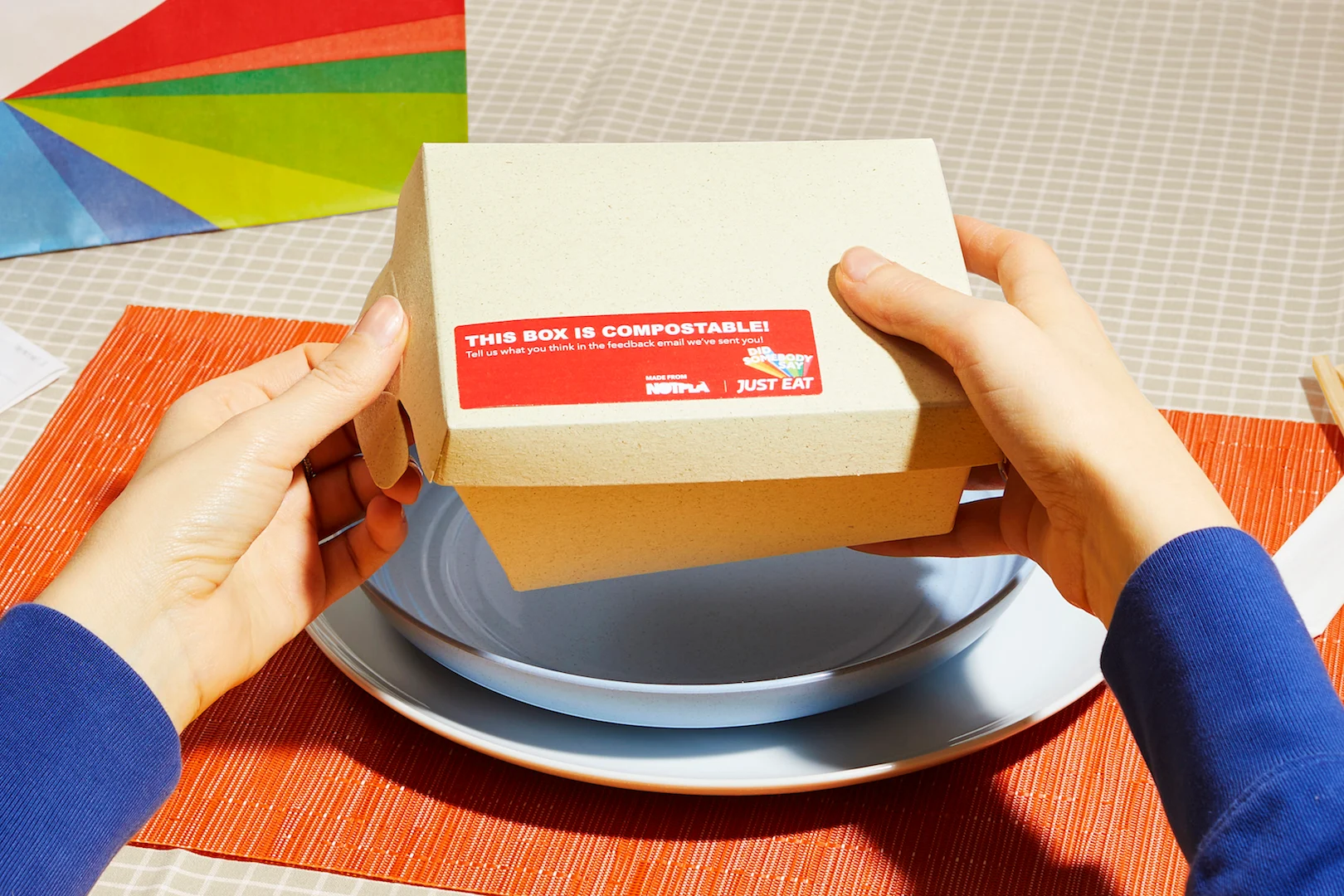
Grass is part of the pulp that creates Notpla’s takeaway boxes, which saves over 3,000 litres of water per tonne compared to conventional fresh fibre cartonboard. Credit: Notpla
“We want to create packaging that looks more like fruits than industrial containers. If nature can do it, we just have to follow nature's example,” stated Pierre Paslier, cofounder and co-CEO, to The Weather Network.
Notpla plans on releasing their disposable food containers, which contain waterproof and greaseproof lining without any synthetic chemicals, later in 2020.
“Our latest product is a takeaway box made from cardboard and coated with our seaweed materials, instead of plastic. We're soft-launching this box next month with London takeaway restaurants before scaling up production. It will be the first takeaway box free from any plastic or synthetic additives,” explained Paslier.
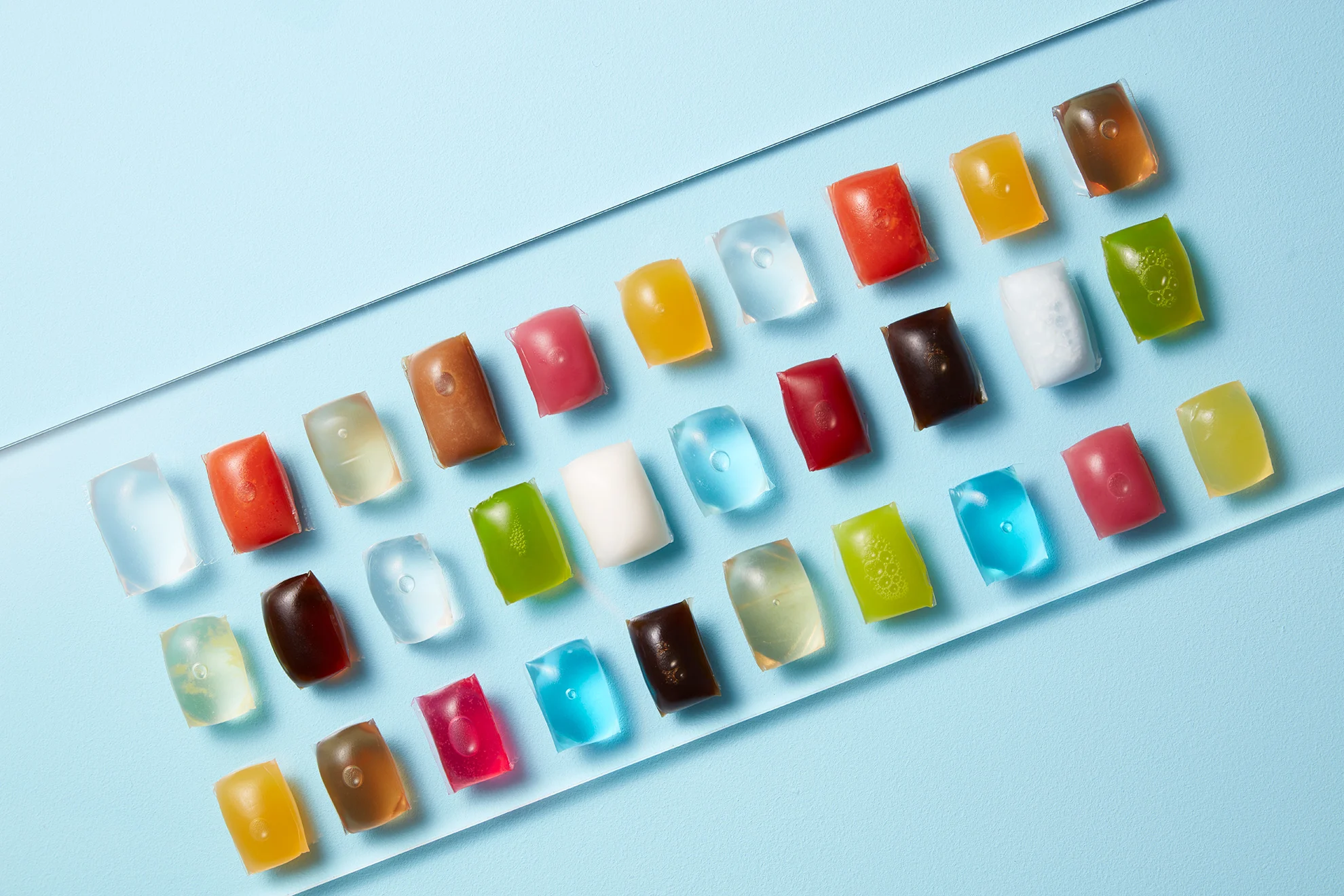
Oohos have been used to serve juice, water, and alcohol cocktails at festivals and private events without using plastic. Credit: Notpla
The company currently sells products wholesale to businesses that are interested in becoming more sustainable. Notpla’s current prototypes include a transparent film for pouches and netted bags for dry products, such as oranges, and can be seen on the company’s Instagram account.

